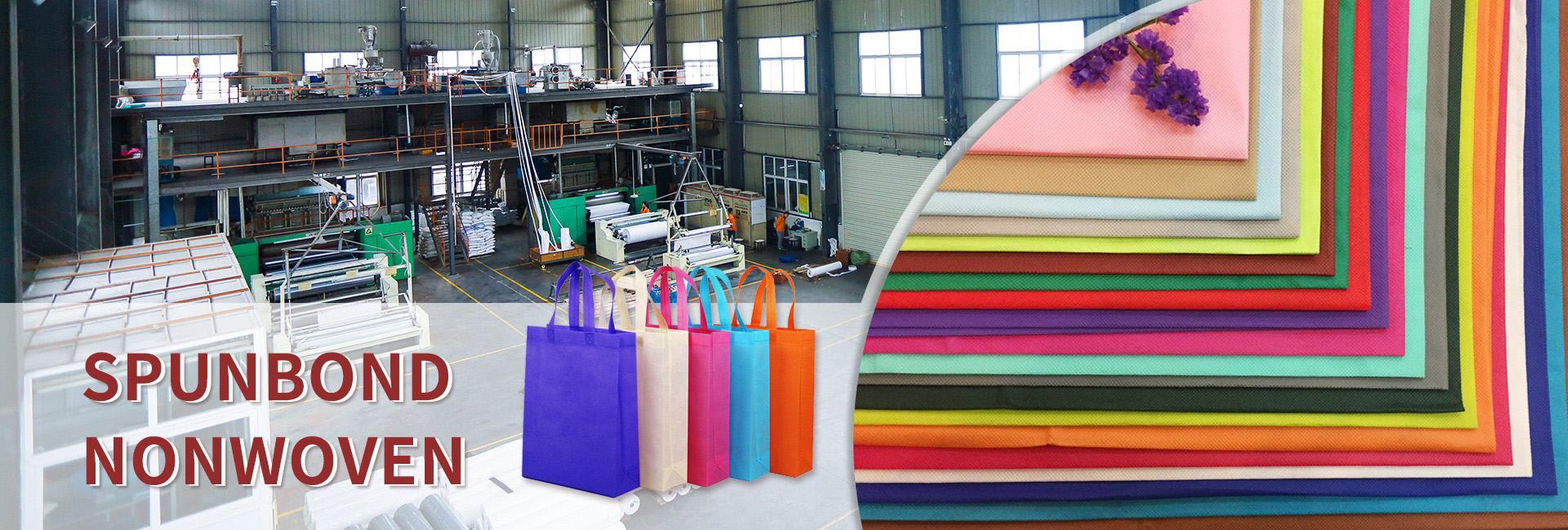Filter non-woven fabrics are often made from polypropylene pellets as raw materials, which are produced through a continuous one-step process of high-temperature melting, spinning, laying, and hot pressing. It is called cloth due to its appearance and certain properties.
Characteristics of filter non-woven fabric
1. Filter non-woven fabric, also known as non-woven fabric, is composed of oriented or random fibers and is a new generation of environmentally friendly materials. It has the characteristics of moisture resistance, breathability, flexibility, lightweight, non combustible, easy to decompose, non-toxic and non irritating, rich color, low price, and recyclability.
2. Filter non-woven fabric has no warp and weft threads, making cutting and sewing very convenient. It is also lightweight and easy to shape, and is deeply loved by handicraft enthusiasts. Because it is a type of fabric that does not require spinning or weaving, short or long fibers are oriented or randomly arranged to form a web structure, and then reinforced using mechanical, thermal bonding, or chemical methods.
Types of industrial filter non-woven fabrics
1. Polyester industrial filter cloth
High strength, excellent wear resistance, low elongation, good acid resistance, soluble in high temperature strong alkaline solution, hydrolyzed and brittle under special circumstances, resistant to dry heat of 150 degrees, good shape retention. The main applications include high-temperature gas dust collection in cement, iron production, and iron charcoal plants, refined clay filtration in oil refineries, and filtration in oil, wine, and chemical plants.
2. Polypropylene industrial filter cloth
Lightweight and easy to handle, with good acid and alkali resistance, but prone to aging. Mainly used for refining dyes and pigments, filtering clay, ceramic clay, chemical drugs, sugar production, beer, oil cleaning and other industrial filtration, factory wastewater treatment, urban sewage treatment, etc.
3. Vinylon industrial filter cloth
Good alkali resistance, poor temperature resistance, and shrinkage occurs when wet, especially when heated. Industrial filter cloth is mainly used for filtering dyes, pigments, ceramic clay, pharmaceuticals, etc.
4. Acrylic industrial filter cloth
Excellent drug resistance, mainly used for dust collection of corrosive gases.
5. Nylon industrial filter cloth
High strength, excellent wear resistance, smooth surface, excellent stripping performance of filter residue, good alkali resistance, but susceptible to inorganic acid erosion, elongation, and deformation. Mainly used for mineral processing, wax melting in refineries, filtration in chemical plants, treatment of factory wastewater and urban sewage, and production of alkali foam.
6. Cotton industrial filter cloth
Mainly utilizing the swelling property of cotton fibers, it is suitable for capturing fine dust. The main applications include general liquid filtration and dust collection.
7. Vinylon industrial filter cloth
Good wear resistance, resilience, and anti-static performance, and flame retardant. Mainly used for making flame-retardant filter cloth.
8. Vinyl chloride industrial filter cloth
Has high wear resistance, resistance to mold and decay, does not absorb moisture, and does not expand in water. Mainly used for filtering corrosive liquids and gases.
9. Glass fiber industrial filter cloth
High tensile strength, low elongation, high temperature resistance, good thermal stability, good electrical insulation, good chemical corrosion resistance, and lower torsional and shear strength compared to other fibers. The main applications include dust collection for high-temperature gases and recycling of valuable industrial products.
10. Aramid industrial filter cloth
High strength, good heat resistance, can be used continuously at temperatures ranging from 180 ° C to 200 ° C. It has excellent chemical resistance, mold resistance, radiation resistance, and flame retardancy. Mainly used as filter bags for filtering gases and separating solid particles at high temperatures, such as in stone powder plants, aluminum powder plants, and other industrial filtration applications.
11. Carbon fiber industrial filter cloth
High elastic modulus, low density, high tensile strength, good heat resistance, good chemical corrosion resistance, good dimensional stability, and excellent conductivity. The main applications include chemical industry filtration at high temperatures, activated carbon fiber felt for air purification, etc.
12. Fluorinated fiber industrial filter cloth
Good chemical corrosion resistance, good thermal stability, low conductivity and thermal conductivity, good electrical insulation, good flame retardancy, and a friction coefficient lower than synthetic fibers. Mainly used for filtration in high temperature and chemical environments, such as the fluorinated felt filter material used in titanium dioxide factories.
Dongguan Liansheng Nonwoven Fabric Co., Ltd., a manufacturer of non-woven fabrics and non-woven fabrics, is worthy of your trust!
Post time: Jul-31-2024

